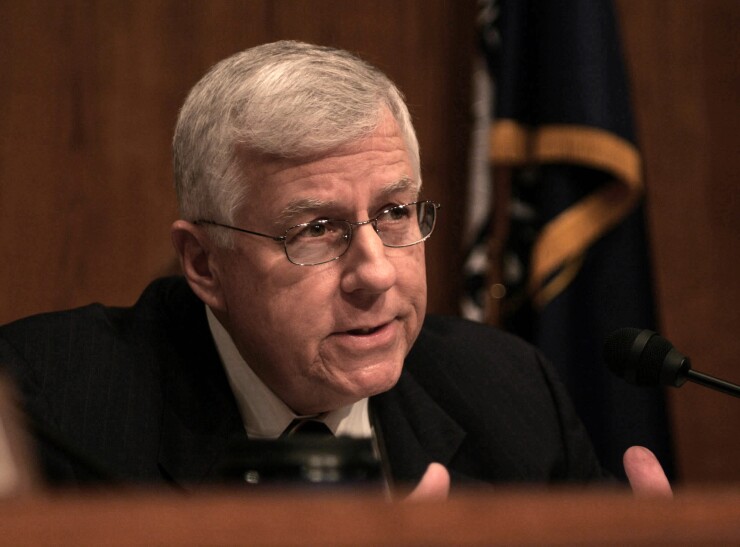WASHINGTON – The Trump administration and a bipartisan group of four senators are urging the Supreme Court to expand the ability of states to collect sales taxes on residents’ purchases made over the Internet.
In separate friend-of-the-court briefs filed Monday with the high court for the case South Dakota v. Wayfair, Inc., they urged the court to either limit or overturn its 1992 ruling in Quill Corp. v North Dakota that said states could only collect sales taxes from online transactions if the retailers were physically present within their borders.
The case, in which the Supreme Court has agreed to hear oral arguments on April 17, is a huge issue for state and local finances.
The U.S. Government Accountability Office found in a report released in December that state and local governments could have gained an additional $8 billion to $13 billion in sales tax revenue last year if they had authority to require sales tax collections from all Internet sellers.
The National Conference of State Legislatures and the International Council of Shopping Centers estimated states and local governments lost $26 billion in tax revenue in 2015 from online retail sales.

The case stems from a law that South Dakota passed in 2016 that required out-of-state retailers that made at least 200 sales or sales totaling at least $100,000 to collect sales taxes. The state eventually sued several retailers that failed to comply. South Dakota’s state courts ruled for the retailers, deeming themselves “duty bound to follow” the U.S. Supreme Court’s rulings in Quill and other cases. Now South Dakota is challenging the “physical presence” precedent set by Quill.
In its brief, the administration, represented by Solicitor General Noel Francisco, said it has a “substantial interest” in the high court’s ruling in the South Dakota case because it “will significantly affect the functioning of the national economy and the states’ financial stability.”
“In light of Internet retailers’ pervasive and continuous virtual presence in the states where their websites are accessible, the states have ample authority to require those retailers to collect state sales taxes owed by their customers,” the administration said.
The ruling in Quill “should not be read to bar that result, both because the Quill Court did not and could not anticipate the development of modern e-commerce, and because Quill’s analysis was deeply flawed,” the solicitor general wrote.
The Quill case involved an out-of-state mail-order retailer that communicated with its customers solely by mail or common carrier to collect state sales taxes on the purchase of goods by state residents, he wrote. The court misapplied the ruling from another case, Complete Auto Transit, Inc. v. Brady, which established a four-factor test for determining the validity of a sales tax, the brief said.
The Quill court found that states tax collection requirements failed the first prong of the test in Auto Transit because a mail order retailer lacks a ‘substantial nexus’ to the states in which it does business. But solicitor general said the high court in Quill failed to consider who may be required to collect the tax.
“States indisputably may tax sales to state residents by out-of-state retailers," he said in the administration's brief.
Because of the “serious analytical flaws” underlying the Quill ruling, the high court “should limit that case to its precise holding, involving traditional mail-order retailers whose only connection to a state is by mail or common carrier,” the solicitor general wrote.
“Quill is badly reasoned and has proved unworkable in the age of modern e-commerce,” he wrote.
The four senators who filed their brief -- Heidi Heitkamp, D-N.D., Lamar Alexander, R-Tenn., Dick Durbin, R-Ill., and Michael Enzi, R-Wy. -- were co-sponsors of the Marketplace Fairness Act of 2017. That bill would give states the right to collect the sales and use taxes they are owed under current law from out-of-state businesses or online retailers.
The brief from the senators quoted Justice Anthony Kennedy, who said the Quill ruling was “questionable even when decided, [and] now harms states to a degree far greater than could have been anticipated earlier.”
The senators disagreed with the Quill's supporters who contend that vast confusion will ensue if states are freed from the physical presence requirement.
There is “little evidence that the states would rush to enact a welter of burdensome use tax collection laws” if Quill is overturned, they said, adding that the technological innovations have driven down the compliance costs of such laws. The senators also said that interstate sellers are already protected from abuses by a number of doctrines.
“Congress is standing by to act should states overstep,” the lawmakers said.
The Quill decision “put the onus on Congress to pass a law that would broadly restore the power of the states to collect use taxes from out-of-state sellers,” they wrote. “It has been 25 years and Congress has not been able to do so. By contrast, Congress has been able to act often and even expeditiously to protect interstate commerce, by passing narrow laws, to deal with specific problems.”





